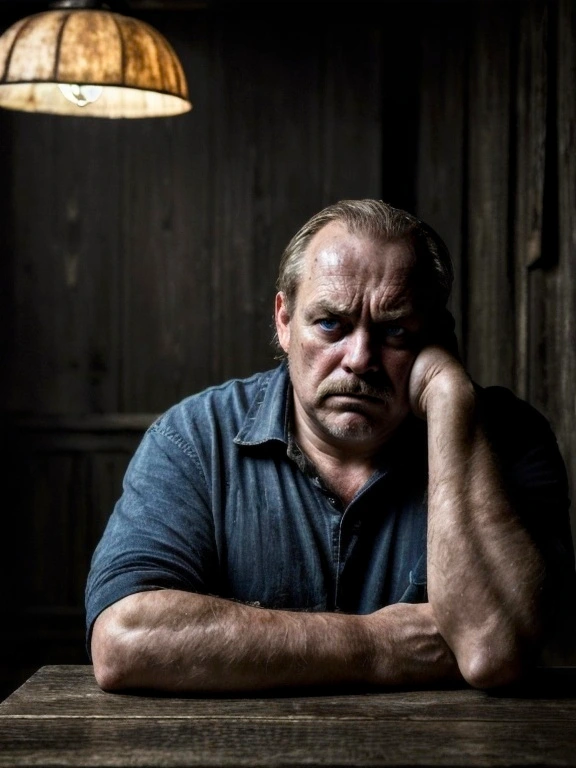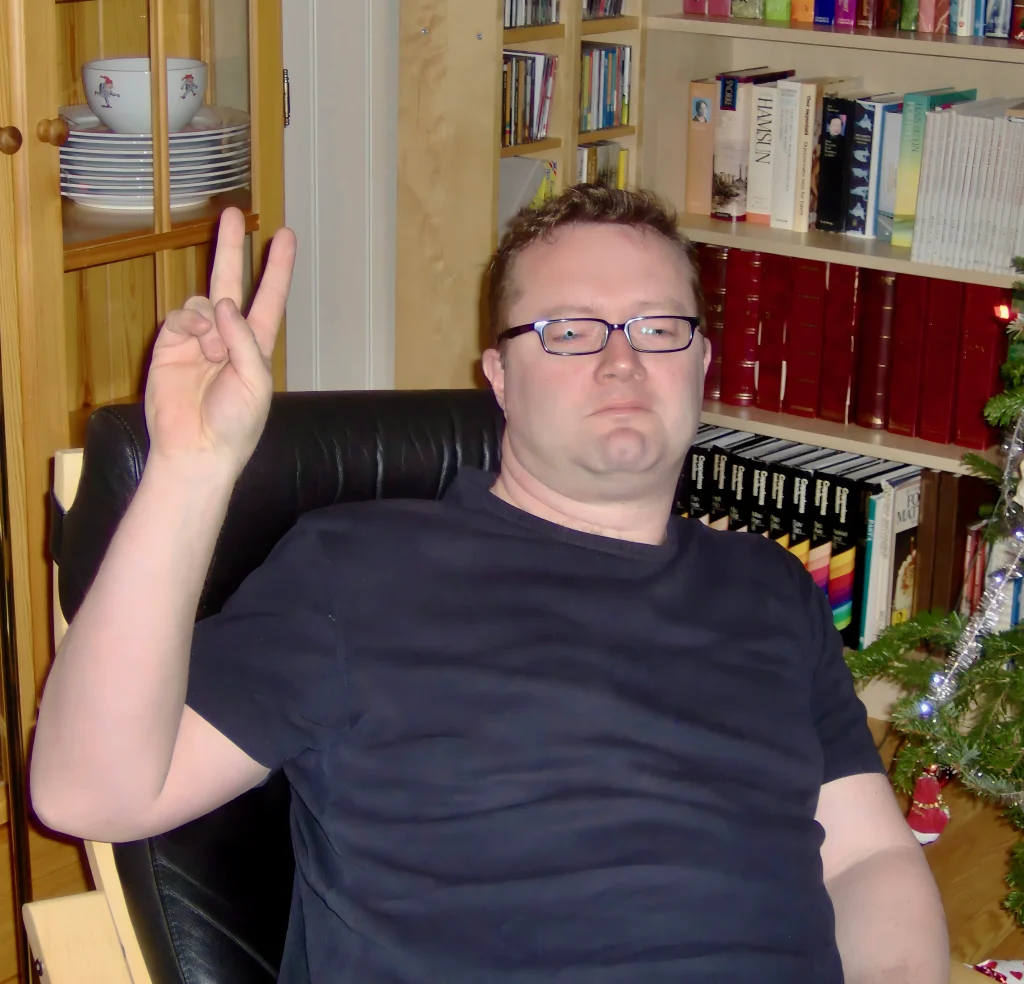Leaving anxiety and depression behind: how to get started
If you’re suffering from anxiety or depression and want a better life, this article is written for you.
Every single one of the 40 pieces of advice below is something I wish I had known before I started my own journey. Even though you are not me, some could be essential to make your process easier and shorter than mine.
This isn’t theory learned from books. Nor an AI-generated sum-up of other people’s writing. This is real-life, hard-earned experience from a lived life.
Why I wrote this article
According to mind.org.uk, 1 out of 6 people are experiencing a common mental health problem (like anxiety and depression) in any given week in England. There’s no reason to believe the situation is very different in other comparable countries.
Should it be so? No!
Why is it so? That’s a complicated question, but I know many people stay in this situation unnecessarily and for too long because they don’t know what to do. Most of all, they stay because they feel shame for not being ‘normal’.
How do I know? Because I did exactly the same myself.
However, I learned from my mistakes.

Preparing for the journey
You don’t know how long this expedition will take. For some, we’re talking about weeks. For others, years. That doesn’t matter. It’s worth it anyway. I’ll return to this, but for now, trust me.
The point is that we should prepare ourselves as best we can before we start a journey of unknown extent. In this case, it means there are some basic things you need to understand to handle the rough spots on the road. But first:
#1 Acknowledge your problem
You can’t solve a problem without admitting its existence.
If you feel miserable but keep telling yourself, “I’m okay” or “There’s nothing wrong with me”, you’re living in denial.
You want to be ‘okay’ and ‘normal’—you don’t want anyone to know you’re miserable. That’s most likely the reality.
Be honest with yourself, or you will never get anywhere.
#2 Understand the difference between ‘having a problem’ and ‘being a problem’
Anxiety and depression are things you feel, not something you are. A mental health problem is something you suffer from. It’s not you or your personality or character.
It’s a disadvantage for you in many ways, but it doesn’t make you inherently broken or faulty. It doesn’t diminish your worth as a human being.

#3 Understand the unfairness of mental health shame
Most likely, you suffer from anxiety or depression because something has happened to you. What happens to you isn’t your fault and nothing to be ashamed of. Yes, I know. Easier said than done.
Even if what happened to you was your fault, you’d probably feel less judged if you ended up with a heart attack than with depression.
There is still such a difference between people’s opinions on being physically hurt and being mentally hurt in our culture. And that’s bloody unfair! It’s so blatantly unjust that being a little bit angry is okay. Now, use that anger as fuel on your journey!
#4 Stop comparing yourself to others
“I don’t know why I react like this. No one else does. There must be something wrong with me!”
No, that’s not how things work. No one else is you. No one else has your genes (except if you are an identical twin). No one else had your childhood or experiences later in life, living in the same family and culture.
This means you should never judge your emotional reactions and state of mind by comparing yourself to others.
Besides, I bet you are pretty good at hiding your emotions. Particularly the difficult ones. So what makes you think others don’t do the same? Most people are fighting their worst battles alone.
#5 Understand that your problem isn’t necessarily an ‘illness’
Feeling sad or anxious is a natural emotional response when life is hard in one way or another. There’s nothing wrong with you if you have emotions like these.
On the contrary, there would be something wrong with you if you didn’t respond emotionally to things happening around you.
But even though it’s natural, it still hurts, right?
If it lasts and lasts, it’s not something you’re supposed to put up with. There’s no reason to wait. Start doing something about it!
If your problem seriously impairs your ability to live and function, however, then we can start talking about an ‘illness’ or ‘disorder’. I know. That sounds scary!

#6 Understand that a diagnosis isn’t a criminal conviction
Who would want a mental health diagnosis? We don’t want that label stuck on our foreheads!
First of all, medical journals are confidential. You won’t have to wear a badge saying, “Beware, I’m mental!”.
True, you may be asked to disclose your medical journal in a few situations in life. But how unique is it, really, to have had an anxiety or depression diagnosis at some point in one’s life?
According to mind.org.uk, 8 per cent of the English population have a mixed anxiety and depression diagnosis and 6 per cent have a generalised anxiety disorder diagnosis, for instance – in any given week. Imagine what this adds up to in a country’s population over a lifetime. You are far from alone!
Besides, if you are ill and need treatment, a diagnosis is your entry ticket to specialised healthcare in most countries. Don’t say no to that ticket out of shame if you need it!
#7 Understand your own importance to your healing
Whatever your situation, whether you’re slightly miserable or seriously ill, you are and will forever be your most important healthcare professional anyway – and, in most cases, the only one you’ll need.
So much can be gained by taking your situation seriously, seeking to understand it, and making necessary adjustments and changes.
And even if you do need professional help, no GP, counsellor, or psychologist will ever be able to heal you without you (yes, you!) on the team.
#8 Understand when you do need professional help
This is important!
You don’t want to miss these signals (borrowed from the Mayo Clinic):
- Significant changes in your personality or your eating and sleeping patterns.
- Unusual or ‘magical’ thinking.
- Long-lasting or extreme mood swings, anxiety or apathy.
- You’re thinking of suicide or harming yourself or others.
- Uncontrollable anger, hostility, and violent behaviour.
- Alcohol and drug misuse.
I would say this: if you feel you cannot cope anymore, you need to seek help. And you should look for help if you’re stuck and cannot find your way alone.

#9 Stop flogging yourself for being weak
“Yeah, but won’t I show people I’m weak if I can’t cope on my own?”
Just stop it! Right now!
Since you’ve had the motivation to read this far, I bet you have suffered from anxiety or depression long enough.
It’s true what they say: ” You’re not weak; it’s just you’ve had to be strong way too long.”
No one carries the burdens of anxiety and depression for a long time without a robust spine. You are strong! And you show even more strength if you seek help when needed.
#10 Learn as much as possible
All problems are easier to solve if you know the reasons why they appear and develop and how to troubleshoot them.
A lot of good resources on anxiety and depression are available – just a Google search away.
You should focus on reputable websites. Knowledge and opinions are two different things. And most of all:
#11 Be aware of the ‘simplicity prophets’
Who are they?
Well, those people who say things like: “Can’t you just…” or “You’ll just have to…”.
You’ll find them everywhere, among your friends, as authors of self-help books, and on the web.
The problem with the ‘simplicity prophets’ isn’t that they are always wrong. It’s just that they usually pick out one piece of a big jigsaw puzzle and claim, “This is the one and only solution!”.
Healing is more complex than that. All the pieces of your healing puzzle are necessary, and all of them have to be used.

#12 Be kind to yourself – but not too kind
Healing always means change in one way or another. And all change worth making comes with some discomfort – or even pain.
If you sum it all up beforehand, this pain may feel too huge to handle. But remember, on even the longest journey, you just have to take one step at a time.
And small steps are always better than not moving at all. The only way to make failure a certainty is to do nothing.
Be kind to yourself. Take the time you need. Make your steps as small as you need. But don’t be too kind. In this case, too much short-term kindness is long-term cruelty towards yourself.
#13 Losing a battle doesn’t mean you’ll lose the war
You will fail now and then along the road.
So what?
No one can provide a complete step-by-step guide to solving your problem. No healthcare professionals, friends or family members, self-help books, or self-learned bloggers (yes, I know) can ever do that.
You will sometimes try to put down pieces of your healing puzzle in the wrong place. And that’s okay. Making mistakes is always the best way to learn. Trust me, I’ve made most mistakes you can think of.
#14 Decide that you want change
This might be the most important decision of your life. So make it. You want change; you want to do something about your suffering.
Without a decision, you will stay paralysed and not move.

Setting off: The first step is always the hardest
Every journey starts with the first step, which is almost always the hardest. Still, it must be taken.
If you have acknowledged your problem and decided you want change, you have already taken two crucial steps. But that’s in the hallway of your mind, inside your front door.
Now, it’s time to walk out into the world. This doesn’t mean you have to shout anything from a mountaintop. But it means you’ll have to start making real-world changes. And that is the really hard first step.

#15 Protect yourself from the source of the problem
If you burn yourself on a hot object, your reflexes automatically yank your hand away from it.
Obviously, something similar should happen if something hurts you emotionally. But in real life, things can be more complicated. If you’re living in a toxic relationship or your job is about to kill you, you can’t always ‘just leave’.
However, you should start looking for ways, even small ones, to create some distance, emotionally or physically. You need space to breathe, think, and plan for your next steps.
#16 Antidepressants may help
If your next step is seeking professional help, their first step is almost always to put you on antidepressants.
Why? Because it’s the cheapest and easiest way for health services to deal with the situation, which doesn’t necessarily mean the best way for you.
That said, I won’t discourage you from trying antidepressants. But be prepared for this:
- There are several different types of antidepressants. Some of them may work for you, while others won’t.
- This means you’ll have to find the right one for you – if there is one.
- And this means you might be in for a process of trial and error, which takes time.
The bottom line is: Antidepressants may help you, so why not try? But don’t be discouraged if you don’t gain anything. So don’t sit around waiting before you try other things.
#17 Antidepressants won’t make you happy
When antidepressants became available in my country of birth, Norway, a popular name for them was ‘lykkepiller’ – ‘happiness pills’.
Please don’t expect happiness from them. They are not that type of drug. If you’re lucky, they will lift your mood a little while you’re feeling low. That’s what they are designed for.
Many people report they are feeling “empty” or “emotionally flat” while taking antidepressants. That’s probably correct, and what to expect.
However, if you are deeply depressed, even a small lift might be what you need to keep going.

#18 Most people will feel side effects from antidepressants
I’d say you are fortunate and unusual if you get clear positive effects from antidepressants without experiencing any side effects.
In some cases, while you try different types of antidepressants, you might feel side effects without any positive impact at all.
I still won’t say it’s not worth trying. Just be prepared for the realities.
#19 Sustainable medical remedies for anxiety are rare
In my experience, all medicines that effectively help you with anxiety are highly addictive. One group is benzodiazepines (Valium, for instance).
This means you should be careful. I mean, really careful!
The same goes for self-medication with alcohol and other recreational drugs.
You don’t want an addiction on top of your anxiety. And definitely not the added anxiety you’ll get while trying to get rid of the addiction.
Some people claim certain antidepressants help with their anxiety. Again, you’ll have to be lucky. I’m not saying this to scare or discourage you. My point is that you must not wait for medicines to solve your problem.
The truth is that anxiety and depression medication will never solve anything. In the best case, they are emotional painkillers. Just like physical painkillers, they may help you cope while you do what’s necessary to heal. But they can’t and won’t solve the underlying problem.
#20 Why it helps to talk about it
Ah, now we’re getting into the nasty part. At least, that’s what many of my peers will think. That is middle-aged men who, from childhood, were discouraged (sometimes by ridicule, sometimes violently) from talking about emotions—or showing any emotions at all (except anger).
And what difference can some idle talking make anyway?
Well, it’s not the talking itself. It’s not about what you say to a friend, counsellor, or whatever. It’s about what’s going on inside you while you talk:
- To express something sensible, you have to formulate it.
- To formulate it, you have to understand what you feel.
There is more to it, which I will return to. But understanding your problem and how it affects you is essential.

#21 You can’t understand everything in one go
Understanding yourself is different from understanding how a car engine works or how to troubleshoot a computer system. The human mind is much more advanced and less logically built.
Besides, emotions tend to pile up on each other in many layers. We might be sad because we feel helpless, but our brain might not allow us to feel sad (because that’s being ‘weak’), so we feel angry instead.
In this example, we consciously feel anger. What we need to understand is the feeling of helplessness.
Peeling off the layers and getting to the core will take time, patience, and effort.
#22 Why writing about it can be helpful
Writing allows you to start exploring on your own without challenging the fear of being judged. This will also help your brain get used to the process.
Why write? Why not just think about it?
Thinking is more chaotic, and if you suffer from anxiety or depression, you’ll most likely end up going around in circles. Writing will be more similar to talking. Again:
- To write something down, you have to formulate it.
- To formulate it, you have to understand what you feel.
#23 A warning about past trauma
This is the point on your journey when you may discover DIY healing isn’t right for you. What you won’t get from self-exploration through writing is other people’s support and guidance.
If you understand your anxiety or depression stems from severe trauma in your past, I strongly recommend you seek professional help.
Please don’t underestimate the dangers of re-traumatisation. Exploring your mind will bring up a lot of memories and hidden emotions. This is the whole point of it. In the case of severe past trauma, however, this can be way too much to handle without a trained guide!

#24 The importance of acknowledging and accepting
That said, let’s switch back to exploration through writing. While writing in solitude, you might find it easier to take the next step:
- When you understand what you feel, you can acknowledge and accept it.
You might have found fear, sadness, regret, shame, anger, and other emotions. So why won’t they ‘just’ go away?
Let’s ask instead: Who are ‘they’? It might be you as a wounded child, or a younger you in a vulnerable situation, being abandoned, humiliated, or abused. ‘They need to be seen, understood and listened to because they probably weren’t before.
‘They’ need your patience and empathy.
#25 Don’t judge yourself now
If you fear being judged by others, don’t do the same yourself (for God’s sake!).
Difficult emotions can’t be healed by beating yourself up. The more you try to fight them, the longer they stay. So please don’t tell yourself to “Snap out of it!”.
Acceptance means it’s okay to feel what you feel—at least, to accept it was okay to feel this way back when the problematic emotion was born. Acceptance also means it’s okay to stay with what you feel as long as necessary to make it fade.
You might be thinking now, “I don’t want to open that Pandora’s box. I won’t be able to close it again”. And I can understand that.
#26 To empty a dam without breaking it
While the point of all of this is to drain your reservoir of locked-up emotions, using a sledgehammer on the dam isn’t always the best approach. Yes, the dam will empty quickly that way, but the flood might sweep away things you hold dear.
Make sure you use a tap and let out only as much as you can handle at a time. This will produce the same result in the end but without the damage.
If you explore your mind through writing, you can limit the time you stay on it at the start. At least until you know how taxing the process will be. Pull away if it gets too rough, give yourself sufficient time to digest, and return when you’re ready.
It’s like driving a car. The most important thing is to reach your destination. It matters less how long it takes. Stay safe.

#27 The benefit of involving someone else
So far, we’ve examined DIY healing through writing. As a true introvert, I find introspection the most natural thing in the world, but I understand if it’s not the same for you. Many people will find it easier to formulate and articulate their thoughts if they converse with another person.
That’s okay. Another benefit is that others can offer perspectives we couldn’t think of ourselves.
However:
#28 Choose the right person to talk to
Make sure the person you choose makes you feel safe and doesn’t judge you.
You might feel close to someone for many reasons, such as shared interests, mutual goals, or complementary personality traits that make you function well together. Sometimes, we are close to someone just because life has put us in that position, for instance, by being members of the same family.
This doesn’t necessarily mean this someone is the right person to talk to about your inner struggles.
Don’t choose a ‘simplicity prophet’ (“Can’t you just…?”). Find a person who understands the difference between what you need and they want. Someone who can listen more than they speak. If you know such a person, that’s absolutely great!
If you don’t, this brings us over to:
#29 The benefits of seeing a professional therapist
What is a therapy session in reality? It’s like a laboratory where you can explore your mind in a safe and protected environment under the supervision and support of a trained professional. That’s all.
From this perspective, it’s not more mysterious than figuring out your indigestion problems under the supervision and support of a qualified GP.
Except that we’re talking about sorting out:
- your sadness, fear, bad memories,
- lack of self-esteem, confidence, and direction in life,
- feelings of weakness, worthlessness, hopelessness, loneliness,
- et cetera.
For some reason, we find this more private and intimidating than having our bowels examined.
But how likely can you say something the therapist hasn’t heard a hundred times before? And even if you do, the therapist is trained to handle it professionally and confidentially and knows how to guide and support you if the going gets tough for you.

#30 Getting used to therapy takes some time
If you are like me, showing up for your first therapy session may be one of the most terrifying moments of your life. And because first impressions tend to stick, you might immediately conclude you don’t like the therapist or therapy in general.
Give it some time. You’re in an unfamiliar environment with someone you don’t know—and you’re supposed to spill your emotional guts out immediately?
Of course not. A good therapist will know this is challenging for you and how to be patient and helpful.
And as you know, you’ll also need to show yourself a little patience.
However:
#31 Some therapeutic relationships don’t work out
And that’s okay. We don’t get along well with all our relatives or colleagues at work. The same might happen with therapists, although rarely if both sides put in effort and patience.
But remember, the therapist is there to help you, which isn’t the same as always agreeing with you.
There are also several different schools of thought within psychology, with different approaches towards the same goal. Therapists are usually trained within one or a few of them. Sometimes, their chosen approach may not be the optimal one for you.
That’s also okay. Sometimes, we incidentally pick up the wrong tool for a job. That’s not a defeat. Don’t use it as an excuse to give up. Try again.
You’ve learned something from this, which brings you closer to a better future.
One last thing:
#32 Don’t waste your therapy time
When you have ‘settled in’ in therapy, it’s time to do the work.
Don’t waste time by avoiding what’s uncomfortable to talk about!
Understanding is essential. However, the next step is critical: acknowledging and accepting the emotional side of it.
This is sometimes called “facing your demons”, but this isn’t what it’s about. It’s about feeling what has to be felt, what should have been allowed to be felt long ago, giving it the space and time it requires, and then letting it go.
This is equally true if you’re working on your healing on your own or with the help of a good conversation partner outside professional therapy.

The importance of balance
So far, we have only examined tools to lessen mental suffering. This is important, but it’s only part of the story.
Even though ending suffering might be the only thing we can manage thinking of sometimes, the absence of suffering alone isn’t the same as happiness and a good life.
There’s no reason to wait until all problems are gone before considering what can counterbalance the negative elements in your life and make you thrive.
#33 Your body and mind are connected
“Stop being such a couch potato! You just need some exercise!”
It’s wrong to say you “just” need some exercise as if that would solve all your problems (‘simplicity prophets’ again). What is true is that there is a tight connection between body and mind.
Sadly, I let myself deteriorate physically for decades. I didn’t see much point in doing otherwise. Until I discovered what a mental boost physical activity can give.
It’s not necessary to decide to go vegan and run a marathon next year. While this may work for some people, it won’t for ‘the rest of us’. Setting overly ambitious goals can do more harm than good.
If your maximum right now is to improve your diet slightly and walk for fifteen minutes daily, that’s okay for a start. It’s much more than nothing. The keywords here are perseverance and regularity. Set goals you can achieve and enjoy the feeling of mastery this gives you. Then, you can slowly get more ambitious.
#34 The difference between positive thinking and positive psychology
“Can’t you just try to think positively?”
Few things have been more repeated by the ‘simplicity prophets’ than this. It’s an assumption that if you force yourself to think positively, not only will all your problems disappear, but you will also magically achieve everything you wish for.
‘Fake it till you make it?’ Please, no!
Positive psychology, on the other hand, is a scientific study of what makes us thrive, focusing on our strengths and positive experiences. Contrary to the positive thinking movement, this is based on research.
This is not an alternative to traditional psychology, which has always been about lessening suffering. It’s a very valuable supplement and something I strongly recommend you keep in mind when you start your journey out of anxiety and depression.
Let’s have a closer look.
#35 Grow positive emotions
Martin Seligman, the founder of positive psychology, defined the PERMA model to explain what gives us wellbeing. The ‘P’ stands for positive emotions.
No, this is not about faking or forcing positive thoughts. It’s about exploring what we can do to naturally grow positive emotions like hope, interest, joy, love, compassion, and gratitude in us.
Even if you don’t think you can feel happy right now, what has given you positive emotions earlier? Try to find time and motivation to do some of this regularly. You might be surprised.
However, positive psychology is more than chasing happiness.

#36 Engage yourself
Have you ever been so absorbed by doing something you lost track of time?
Positive psychologists have proven this ‘flow’, or engagement, also significantly contributes to our wellbeing. Engagement is the ‘E’ in the PERMA model. The trick is to find the perfect combination of challenge and our skills and strengths.
What has put you in ‘the flow’ earlier?
Engaging in charitable work? Long walks in nature? Writing blog posts about how people can improve their lives? It’s individual, of course.
#37 Seek positive relationships
The ‘R’ in the PERMA model stands for positive relationships. It’s about feeling supported, loved, and valued by others.
Obviously, a positive relationship isn’t the same thing for everyone. For some people, being in the middle of a vast social circle at all times would be perfect. For others, deep and trusting relationships with a few people is what they need.
Please be aware of which relationships make you feel supported, loved and valued. Not all relationships do, not even all close ones. You might have to choose with whom you spend your time.
#38 Find meaning
Do you have a purpose in life? What makes you think you have value and worth?
Yes, I know. These questions feel pointless if you’re in the middle of a depression. Meaninglessness and worthlessness are precisely what depression makes you feel.
Still, you will have felt meaning, the ‘M’ in the PERMA model, at some point earlier in your life—perhaps at work, when raising children, or volunteering for a good cause.
Can you manage to do some of these things again? I think you should try. Or maybe it’s time to try something new?
Finding meaning in your life might not solve your problems as such, but it is the most potent booster imaginable to keep going.

#39 Achieve something
Sometimes, it’s hard to see we can achieve anything at all. Depression will tell us we’re a failure in whatever we do, and anxiety can effectively prevent us from trying.
Remember the baby steps from earlier. Goals should be achievable, or else they’re meaningless. Don’t self-sabotage by setting too high goals and standards at the start. Make sure you achieve something before you raise the bar.
Achievement, the ‘A’ in the PERMA model, is important for our wellbeing because it gives us mastery, pride, and self-confidence. Build them slowly, if necessary.
#40 Cultivate flexibility
One last advice from an old soldier who survived the trenches of anxiety and depression:
Try to be flexible.
As mentioned, setbacks will happen. The journey out of anxiety and depression isn’t a straight and wide highway. There will be dead ends. Every time you are forced to turn around, you learn something about what doesn’t work. Which brings you closer to what does work for you.
Sometimes, you’ll make plain mistakes despite knowing better. Forgive yourself! You’re not a machine; you’re human. Brush the gravel off your bruises and keep going.
Sometimes, others will try to sabotage your progress out of stupidity, ignorance, selfishness, fear of changes, fear of losing power over you, or simple malice. Don’t let them break you. Spend as little time and energy on them as possible.
Because somewhere ahead, someone is waiting for you:
Your future self
There is only one thing I regret from my own journey out of anxiety and depression: That I didn’t start earlier.
Shame and fear of judgment made me wait almost 40 years before I even tried. It took me 15 more years to reach a breakthrough, and I still have some tidying up to do in the cobwebbed corners of my unconscious mind. I assure you that the longer you wait, the more you will have to untangle.
I’m not bitter, but I wish I had been braver 40 – 45 years ago. I know the younger me did his best under the circumstances. However, hadn’t he sat on his hands for decades, my present life could have started much earlier.
But I’m so happy I’ve arrived where I am after all. My guarantee to you is that it’s worth the struggle. However long we wait, however dark, grim, and painful the journey, it’s worth it.
Even if my new life had lasted only a week, it would still be worth it. One day, I’ll leave this life. Imagine the difference between living in darkness until that day and having seen the sunrise first!
It’s your turn now.
Don’t let your future self down. Start your journey today!
This article is based on my actual experiences. Of course, I don’t know you and your situation in detail. If you work with healthcare professionals to solve your problems, they will know you better. If they recommend something different for you than I do, please follow their advice.















Post Comment
You must be logged in to post a comment.